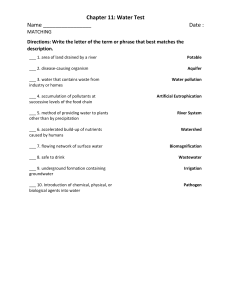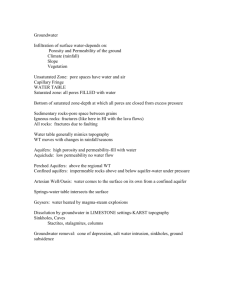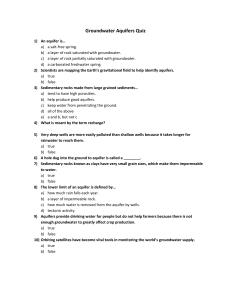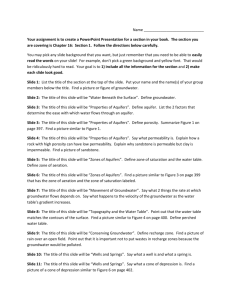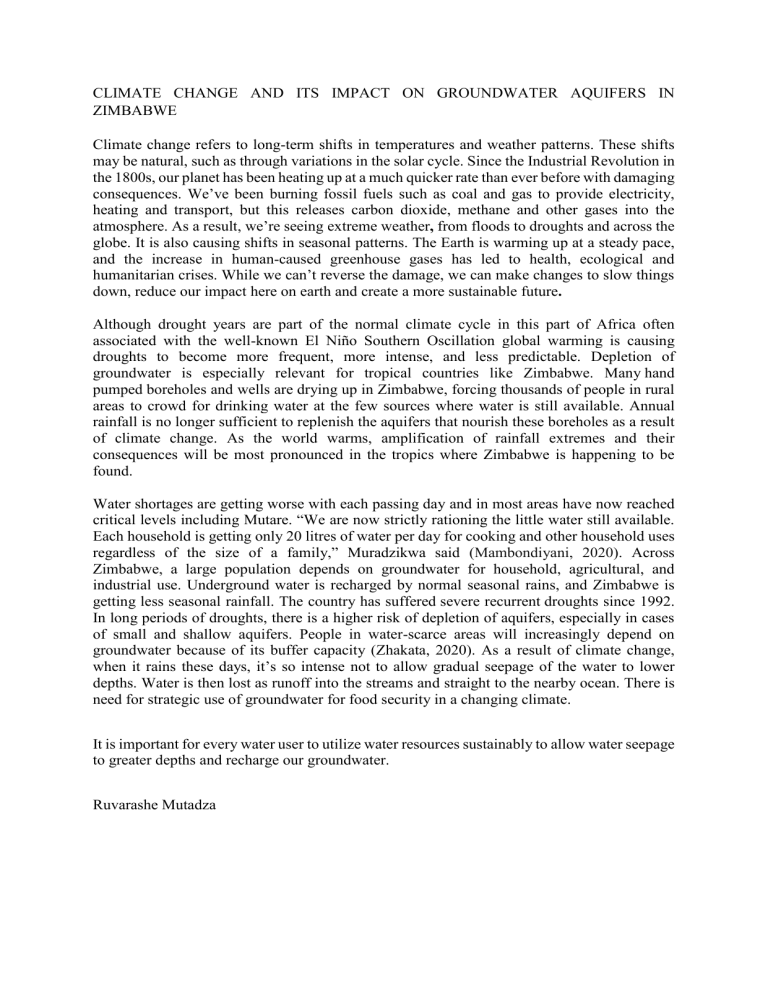
CLIMATE CHANGE AND ITS IMPACT ON GROUNDWATER AQUIFERS IN ZIMBABWE Climate change refers to long-term shifts in temperatures and weather patterns. These shifts may be natural, such as through variations in the solar cycle. Since the Industrial Revolution in the 1800s, our planet has been heating up at a much quicker rate than ever before with damaging consequences. We’ve been burning fossil fuels such as coal and gas to provide electricity, heating and transport, but this releases carbon dioxide, methane and other gases into the atmosphere. As a result, we’re seeing extreme weather, from floods to droughts and across the globe. It is also causing shifts in seasonal patterns. The Earth is warming up at a steady pace, and the increase in human-caused greenhouse gases has led to health, ecological and humanitarian crises. While we can’t reverse the damage, we can make changes to slow things down, reduce our impact here on earth and create a more sustainable future. Although drought years are part of the normal climate cycle in this part of Africa often associated with the well-known El Niño Southern Oscillation global warming is causing droughts to become more frequent, more intense, and less predictable. Depletion of groundwater is especially relevant for tropical countries like Zimbabwe. Many hand pumped boreholes and wells are drying up in Zimbabwe, forcing thousands of people in rural areas to crowd for drinking water at the few sources where water is still available. Annual rainfall is no longer sufficient to replenish the aquifers that nourish these boreholes as a result of climate change. As the world warms, amplification of rainfall extremes and their consequences will be most pronounced in the tropics where Zimbabwe is happening to be found. Water shortages are getting worse with each passing day and in most areas have now reached critical levels including Mutare. “We are now strictly rationing the little water still available. Each household is getting only 20 litres of water per day for cooking and other household uses regardless of the size of a family,” Muradzikwa said (Mambondiyani, 2020). Across Zimbabwe, a large population depends on groundwater for household, agricultural, and industrial use. Underground water is recharged by normal seasonal rains, and Zimbabwe is getting less seasonal rainfall. The country has suffered severe recurrent droughts since 1992. In long periods of droughts, there is a higher risk of depletion of aquifers, especially in cases of small and shallow aquifers. People in water-scarce areas will increasingly depend on groundwater because of its buffer capacity (Zhakata, 2020). As a result of climate change, when it rains these days, it’s so intense not to allow gradual seepage of the water to lower depths. Water is then lost as runoff into the streams and straight to the nearby ocean. There is need for strategic use of groundwater for food security in a changing climate. It is important for every water user to utilize water resources sustainably to allow water seepage to greater depths and recharge our groundwater. Ruvarashe Mutadza
